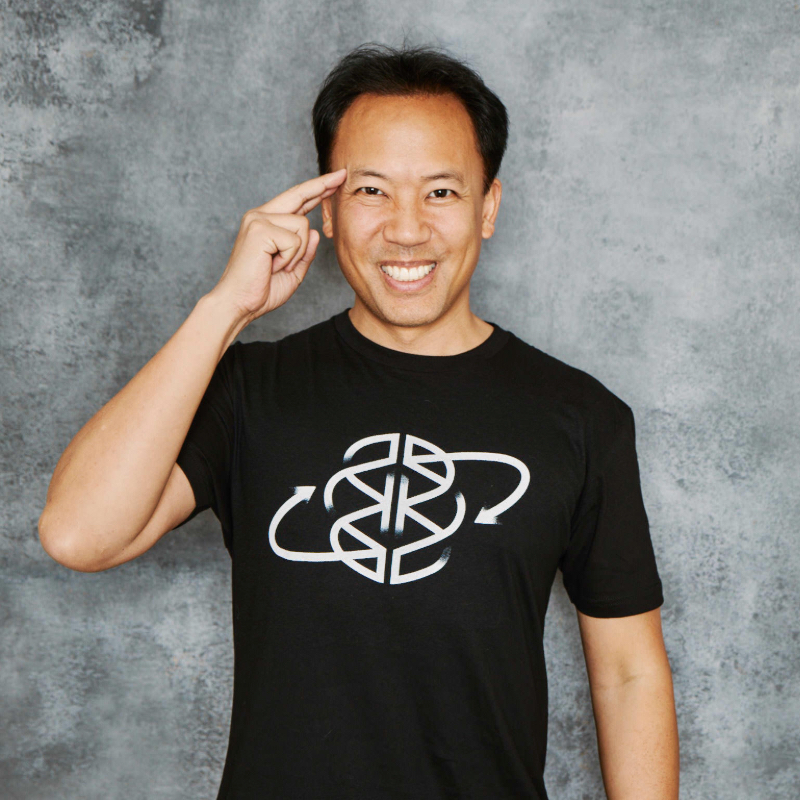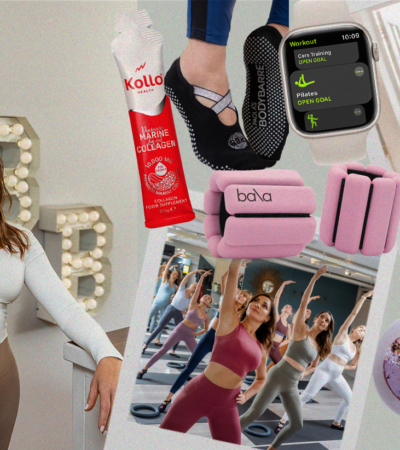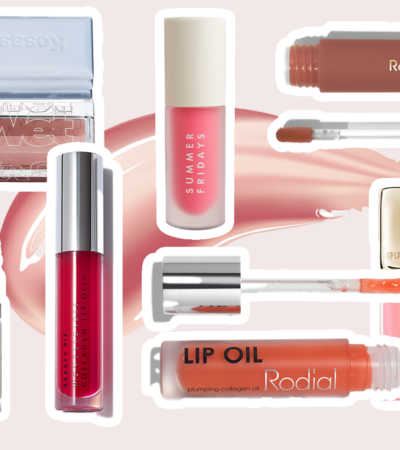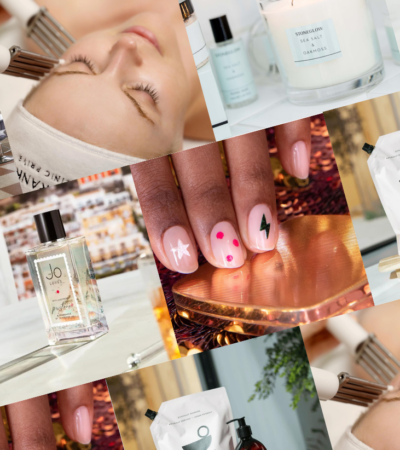Oprah Winfrey, Elon Musk, Richard Branson, Will Smith… these are just a few of the people world’s number 1 brain coach Jim Kwik considers clients. No tough feat for someone once known as ’the boy with the broken brain’ after a traumatic brain injury. Through 20 years of deep research into the science of learning + memory, Kwik became an internationally renowned master of memory, learning, speed reading + the brain. This experience fuelled his passion for helping others unlock their brain’s potential and led him to become a renowned expert in memory, learning, and brain performance. By taking a peek inside the day-to-day routines that make Jim tick, we can see how simple it is to maximise our brain function and level up our life.
In order to win the day, you have to win the first hour of the day. Often people wake up and they don’t have a clear process— I believe that first you create your habits, and then your habits create you. Research suggests that about 40% of your day is habitual— things that you do without even thinking about it. They are like these invisible scripts— but where did they come from? The treasures you want most, are hidden in your daily routine.
These habits are not meant to take time but rather save you time. See what works for you, and go forward with the things that resonate with you.
1.
The first thing I do is remember my dreams. The research says you spend about 20 years life sleeping, and 3-5 years of life dreaming. But when your brain is reading and studying all day, it doesn’t shut off at night. If anything, it’s more active at night, when you’re consolidating short-long term memory. You’re also coming up with great ideas and new learnings— your brain is still learning at night through the process of dreaming. Did you know, Mary Shelley came up with Frankenstein in her dream? A chemist came up with the framework of the periodic table in his dream too. Your brain is incredible, and your dreams are a tool to be able to help you to learn. Most people don’t remember their dreams, so I go through a 6 step process of remembering my dreams.
2.
The next thing I do from there is make my bed. How you do anything, is how you do everything. If you want an excellent day, you want to start with excellence. There’s a reason why they make their bed in the military with such precision— because if you do something with excellence, you’re more likely to take your excellence with you into your life. When we’re talking about habits, that’s excellence. A clean environment is also good for your brain— you will come back full circle at the end of the day to success. Make your bed for a better brain.
3.
Another thing I do is hydrate, as you can lose up to a pound of water during sleep through respiration and perspiration. Your brain thrives on hydration, it’s the number one brain nutrient. This is also when I’m taking my supplements, such as my probiotic. It’s important to remember that your gut is your second brain, with the second highest concentration of nerves.
4.
Next, I brush my teeth with my opposite hand. You have something called cross-laterals— that one part of your brain that controls the opposite side of your body. Research suggests that one part of your brain controls the opposite side of your body. However, there’s not only a mind-body connection but a body-mind connection. Using your opposite hand while you do things can stimulate different parts of your brain on the opposite side. Other things you can do include eating with your opposite hand— studies done by Dr. Lawrence Katz on longevity were all about simple things you can do to upgrade and keep your brain alive. Another reason why I ask you to use your opposite hand is that it keeps your brain present. A lot of people are everywhere and are training their distraction. You need to starve your distraction and feed your focus— being present helps you to do that. Brushing your teeth with your opposite hand forces you to be present and in the now.
5.
From there, I do a light workout— not my primary workout but there was a study done at Appalachian State University asking the best time to workout for weight loss and sleep— 7am, 1pm, or 7pm? They found that 7am was the preferred time. I always say, whatever’s good for your heart will be good for your head. A light workout will support blood flow, oxygen and get your heart beating— this collectively feeds your brain. The people who worked out in the morning also slept better too. I don’t do my full workout in the morning, but you want to get your heart rate up for about 3 minutes to jumpstart your brain. This can be anything from jumping jacks, jump rope, or callisthenics— just 3 minutes will get not only your heart pumping but your brain pumping too.
6.
Next, I take a cold shower. Studies done on cold therapy say it helps to lower inflammation in your body. Research suggests that inflammations tarts a lot of challenges and dis-ease (lack of ease) in your body. You don’t have to start by taking a 10-minute cold shower, you can alternate going from warm to cold, as this creates a pumping effect in your body which can be beneficial. A primary belief I have that you can adopt is ‘do the difficult thing’. You want to train yourself to have resilience and grit— it’s a muscle that can be trained, just like focus, motivation, energy and memory. If you do the hard thing by learning these lessons now, you sharpen the saw and everything gets easier after that.
7.
Go back to your brain foods— take them all and put them into a blender. Things like avocados, green leafy veggies, water for hydration, dark chocolate and blueberries. Now you have your nutrients all there in a highly digestible way.
8.
Now I do a little bit of reading. Reading is to your mind what exercise is to your body. A great time to up-level your brain is doing your studies while drinking your brain power smoothie, as your brain is more alert.
9.
I also journal, because a different thing happens when you write and take notes. Writing in a journal is a great way of building self-awareness, mental acuity, and episodic memory.
10.
Notice that the one thing I didn’t mention when it comes to jumpstarting your brain, is the thing that most people do— checking their phones. I want you to put most of these things on your to-do list, but also challenge you to have a ’not to do’ list. The most successful people in the world have a long ‘not to do’ list— non-negotiables that they will not do. Checking your phone in the first hour of the day should be top of your ‘not to-do’ list— when you first wake up, you’re in a relaxed state of awareness, a brain-wave state called alpha-theta. However, when you’re in this relaxed state, you’re extremely suggestible. If you pick up your phone in the first hour of the day, you are rewiring your brain for two things: firstly, for distraction. For every like, share and cat video, you’re getting a very addictive dopamine flood, which is building your distraction muscle. Secondly, this habit is rewiring your brain to be reactive. It’s difficult to have a quality life or day if you are just reacting to things going on in your environment. When you are reactive this can disrupt your productivity, performance, profit, positivity and peace of mind. If you are just reacting to everything, you’re never going to be proactive, which is one of the laws of highly successful people. If you’re just reacting, you’re on defence rather than an offence. When I’m journalling, I’ll begin with the end in mind. I write down three things that I’m going to do for myself professionally, three things I’m going to do for myself personally, and won’t touch my phone until I do one of those things. The main idea is this— don’t wake up, pick up your phone and be reactive. Technology is a tool, it’s neither good nor bad, it’s how you use it. By not picking up your phone in the first hour of the day, you’ll see a productivity lift that you cannot imagine.
Jim Kwik, world-renowned brain coach will be headlining the Health Optimisation on 17th & 18th June at the Business Design Centre.















